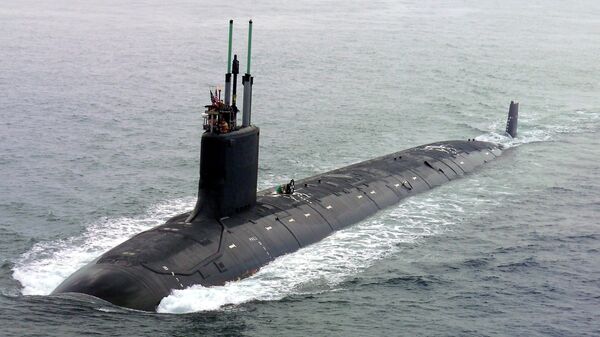The US Department of Justice issued a news release on Monday, noting that Bradken, a subsidiary of Japan’s Hitachi Construction Machinery, paid exactly $10,896,924 to settle federal allegations that it “produced and sold substandard steel components for installation on US Navy submarines.”
Bradken is considered to be the Navy’s leading supplier of high-yield steel, according to the DoJ.
Additionally, 66-year-old Elaine Thomas, who served as director of metallurgy for the Kansas City, Missouri, company, has been charged with “Major Fraud Against the United States.”
The DoJ detailed that a foundry based out of Tacoma, Washington, was acquired by Bradken in 2008 and continued production of “castings that prime contractors use to fabricate submarine hulls.” While ownership of the Tacoma foundry changed, court filings allege that, “for 30 years,” the factory “produced castings that had failed lab tests and did not meet the Navy’s standards.”
Prosecutors highlighted that there is no evidence that Bradken higher-ups were aware of the aforementioned fraud until May 2017, when a lab employee found discrepancies in company records, such as alterations that had been made to test cards. The company then acknowledged the issue through what it now admits were “misleading statements suggesting that the discrepancies were not the result of fraud.”
Thomas is alleged to have falsified test results for more than 200 productions of steel, “which represent a substantial percentage of the castings Bradken produced for the Navy.” The 66-year-old is due in court on June 30 and, as of this article’s publication, maintains that she did not purposefully falsify test results, according to The Seattle Times.
"Bradken placed the Navy's sailors and its operations at risk," US Attorney Brian Moran said in a written statement within the Monday DoJ release.
"The Navy has taken extensive steps to ensure the safe operation of the affected submarines. Those measures will result in increased costs and maintenance. Our agreement with the company is aimed at ensuring they improve their procedures and inform their peer companies about how their systems failed to detect the fraud," he added.
“This case clearly demonstrates that any unscrupulous actions by government contractors and subcontractors will be reviewed and, if appropriate, vigorously investigated by DCIS and its law enforcement partners,” asserted Bryan Denny, special agent in charge of the Defense Criminal Investigative Service‘s (DCIS) Western Field Office.
At the same time, the alleged production and sale of “substandard steel components” went on for three decades before the federal government obtained evidence of the fraud.
Nevertheless, Bradken has remained a Navy contractor by agreeing to “overhaul to its quality control and compliance procedures,” as agreed upon in the settlement, according to the DoJ.


